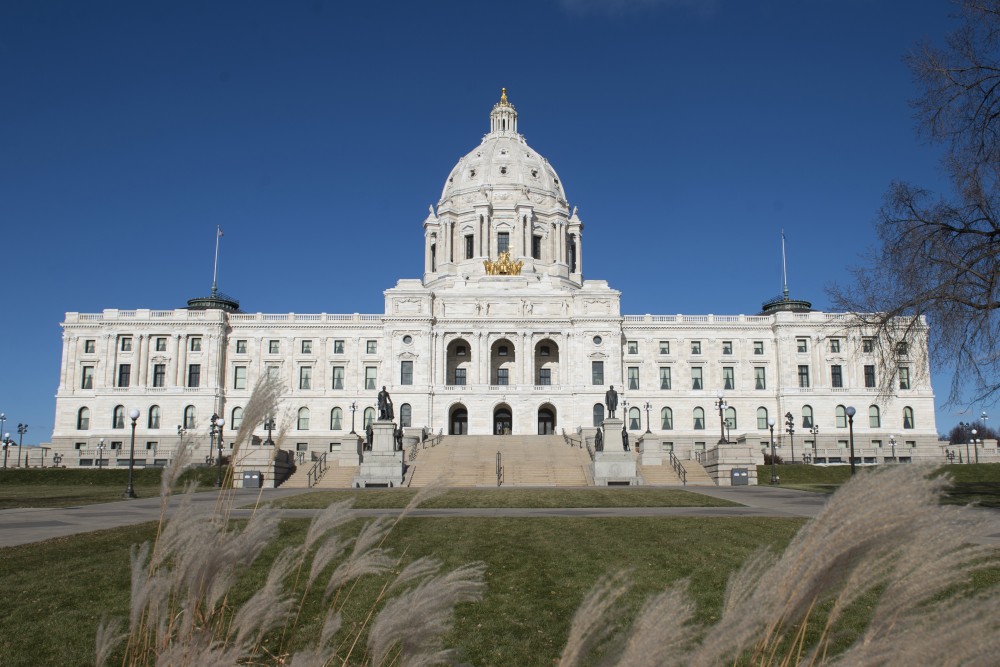There’s growing pressure for the legislature to elect new University of Minnesota regents as the end of session nears.
Senate majority leader, Sen. Paul Gazelka, R-Nisswa, said a date should be set for the joint committee to vote on four regent seats this week. Any further delay in regent selection could affect the eligibility of current candidates and future recruitment, officials say.
If the joint committee doesn’t meet by the time the session ends on May 20, Gov. Tim Walz, DFL, will select candidates as two-year board appointments.
“The Senate, both Republicans and Democrats, want a date set. We want a joint session rather than kicking it to the governor. I’m working on it. I hope that we’ll agree to pick a date, but that’s what we’re waiting for,” Gazelka said.
Mike Kenyanya, student body president for the Duluth campus, is the student regent candidate recommended by House and Senate higher education committees. Eligibility to become a student regent requires enrollment at the time of selection. Kenyanya, who graduates on May 11, earlier than the end of session, said he’s worried about his eligibility as he won’t be a student for much longer.
“It’s not really clear when you stop being a student,” he said. “Most people think [it’s] graduation. I tend to disagree; half of your grades haven’t even been put in by graduation, and you still have to go to the registrar and still have to be given a degree. I understand why graduation would seem like a cutoff, though it’s unclear from conversations I’ve had from people.
Kenyanya said he’s frequented the Capitol in recent weeks to push for a vote before he graduates.
“I would be getting the short end of the stick,” he said.
A delay in voting is going to make recruitment more difficult going forward, according to Regent Candidate Advisory Council Chair Dan Wolter. RCAC spearheads initial recruitment for regents before making recommendations to the Legislature.
“Our recruitment efforts have always been the bizarre nature of this process. We’ve got a lot of people who would love to be a regent, but when they look at this process they say it’s not really worth it,” Wolter said. “A lot of candidates are frustrated because they thought this would be a two to three-month process, not a five-month process. And then all their work could go out the door.”
Beyond his potential ineligibility, Kenyanya said a delayed or canceled vote would lead to recruitment shortfalls for the University.
“It will be a tough sell for people. You do your research; I know I did. I looked at past elections. If you’re a future candidate looking at it, you’re going to see you might have to give up half a year to maybe get a vote?” Kenyanya said.
The holdup in setting a date to vote on regents is due to the House minority caucus’ displeasure with the slate of candidates chosen at a joint higher education committee meeting in February.
At the meeting, current Regent Abdul Omari was among the candidates selected by the People of Color and Indigenous caucus, but he was not forwarded for a seat.
Rep. Aisha Gomez, DFL-Minneapolis, a member of the House higher education committee and the POCI DFL caucus, told the Minnesota Daily she is comfortable with Walz selecting regents.
Though not nominated by the Legislature as a candidate, the caucus could still see its candidate on the board.
“Omari is a really talented guy, and if he gets nominated and elected on the floor, that’s great, and that’s how the process should work,” said Senate higher education committee chair Sen. Paul Anderson, R-Plymouth. “It’s one of those situations where you’ve got to allow the vote to happen and so we’ll see how it goes.”







